Home of UT
Materials Science and
Engineering
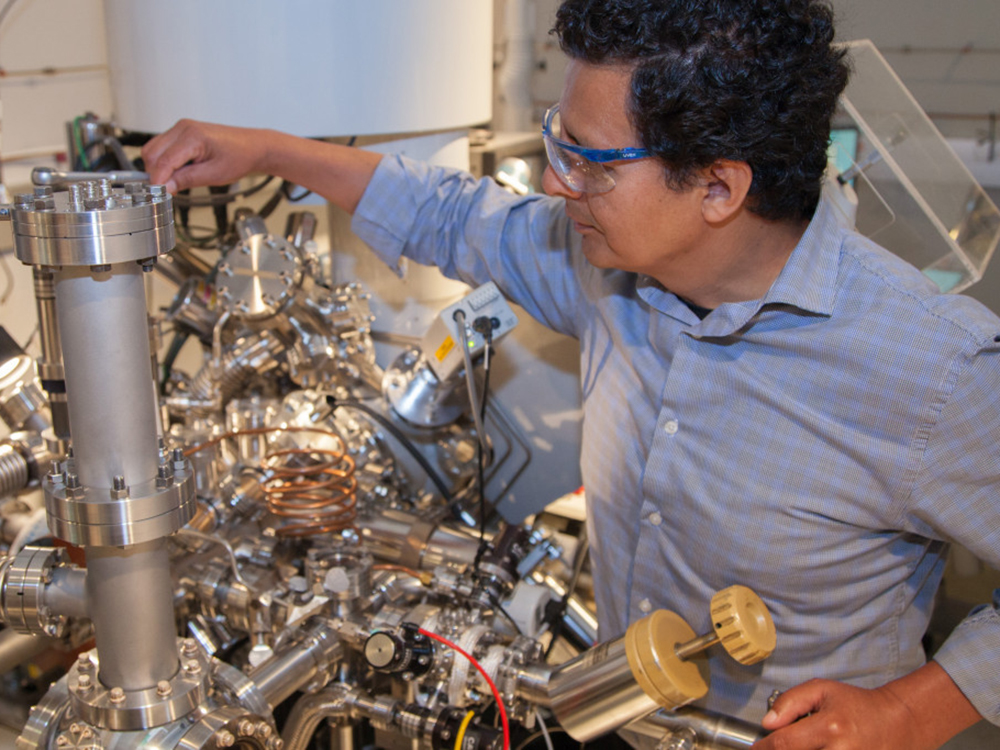
Facilities
With over 10,000 square feet of lab space and state-of-the-art instrumentation and equipment, TMI is a world-class hub for materials research.
Learn More
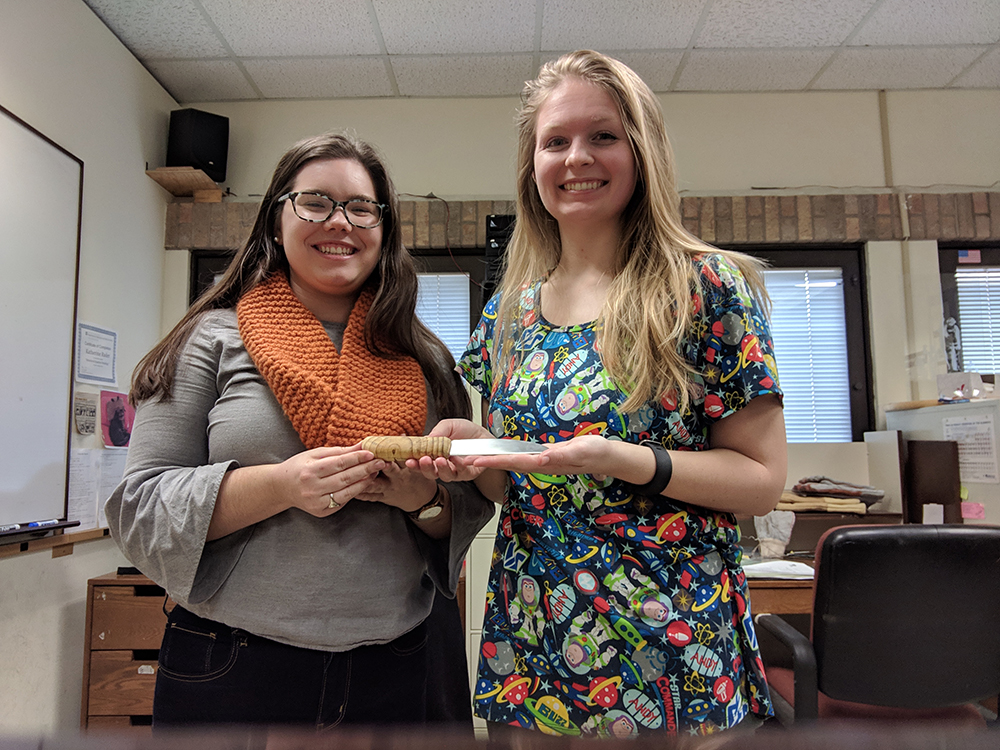
Materials Science
Our Materials Science and Engineering program is one of the best in the nation, and our graduates go on to be leaders in their fields.
Learn More
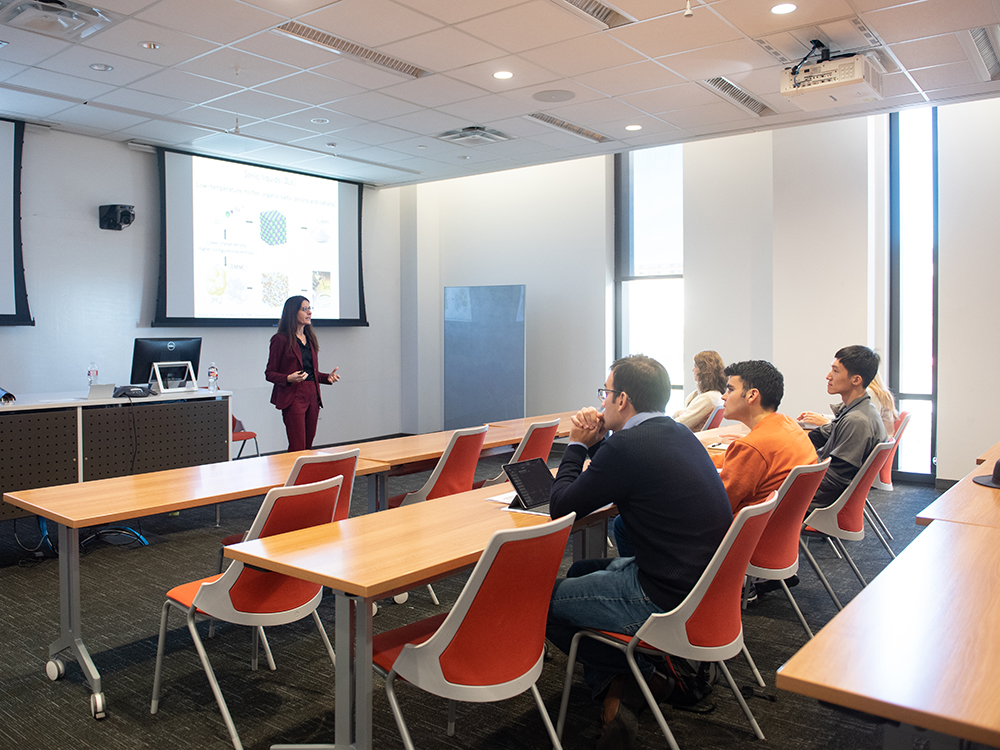
Seminar Series
TMI hosts prestigious speakers throughout the year to promote research collaboration and learning across material science and engineering at UT.
Learn More
Home
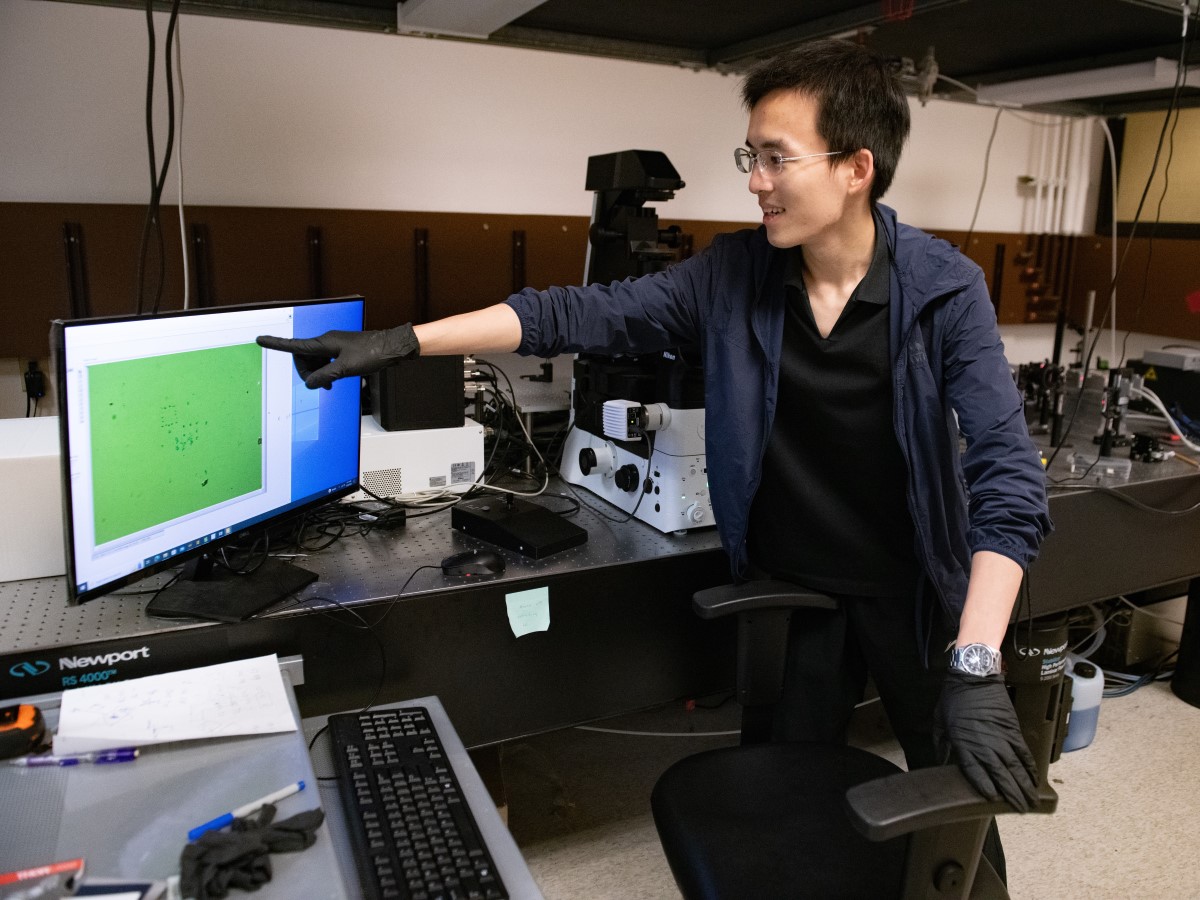
How Lasers and 2D Materials Could Solve the World's Plastic Problem
A global research team led by Texas Engineers has developed a way to blast the molecules in plastics and other materials with a laser to break them down into their smallest parts for future reuse.

Stretchable E-Skin Could Give Robots Human-Level Touch Sensitivity
A first-ever stretchy electronic skin could equip robots and other devices with the same softness and touch sensitivity as human skin, opening up new possibilities to perform tasks that require a great deal of precision and control of force.

Maria Juenger, Cements 2024 Della Roy Lecturer
Dr. Maria Juenger will deliver the 2024 Della Roy Lecture, titled "The Road to Sustainable Cement," highlighting the critical role of sustainability in modern construction.

Arumugam Manthiram Receives 2024 IBA Yeager Award
Professor Manthiram has been selected as the recipient of the prestigious IBA Yeager Award for 2024.
Page 3 of 20
Goodenough Materials Innovation Lectures
In honor of Nobel Laureate Goodenough, this lecture series aims to bring leading experimentalists and theorists engaged in the broad field of materials to illustrate the past and present of materials research, and thereby create a vision for future innovation in this space.
Learn More

$12M+
In Grant Funding
20+
Research Patents
10K+
Sq. Ft. of Research Labs
News
Smart Soil Can Water and Feed Itself
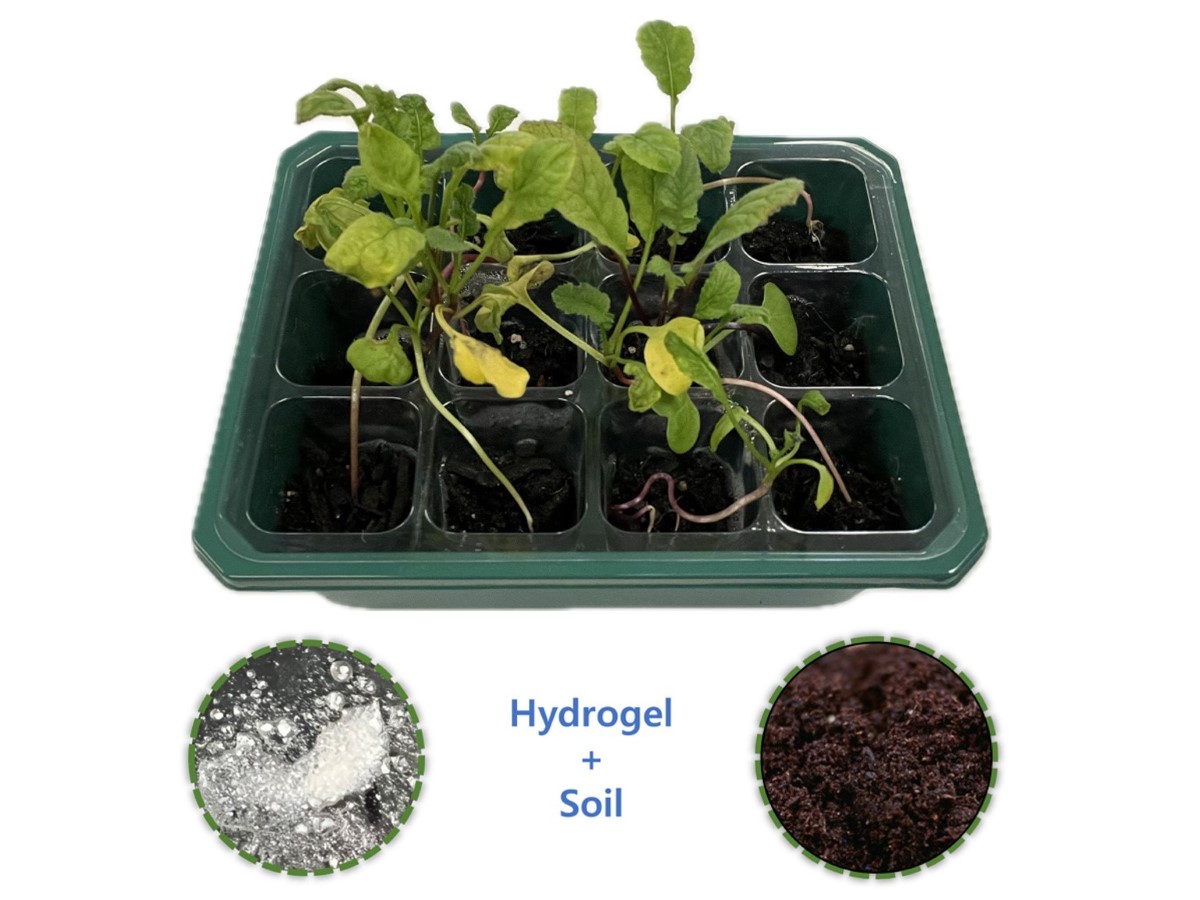
A newly engineered type of soil can capture water out of thin air to keep plants hydrated and manage controlled release of fertilizer for a constant supply of nutrients.
Tanya Hutter Receives NSF CAREER Award 2024
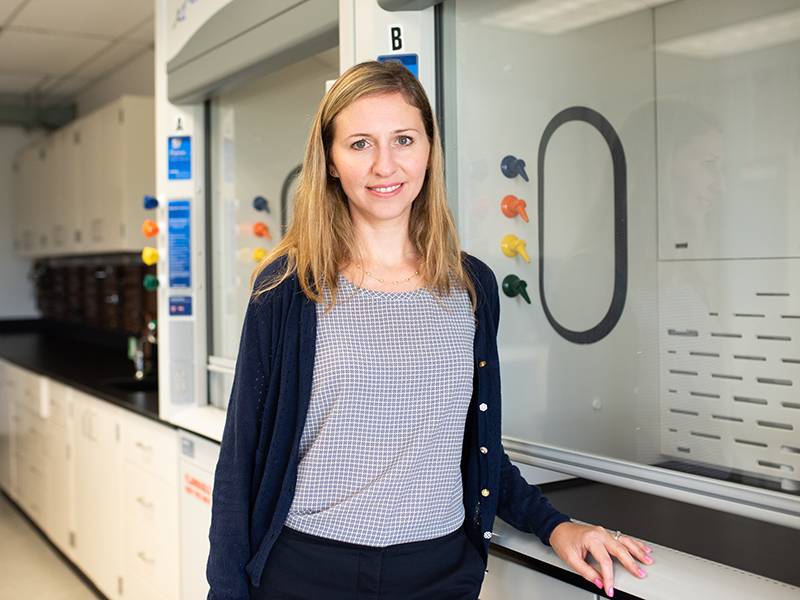
Dr. Tanya Hutter, Assistant Professor in UT Austin’s Walker Department of Mechanical Engineering and Texas Materials Institute has been awarded this year’s prestigious NSF CAREER Award. This recognition highlights her innovative research aimed at advancing the thermal control of porous materials for enhanced gas sorption applications.
Yuanyue Liu Lab Publishes in Chemical Reviews

Yuanyue Liu, an assistant professor in the Walker Department of Engineering and Texas Materials Institute at UT Austin, is at the forefront of developing and applying atomistic modeling methods to advance materials for electronics and energy applications. His research focuses on electrochemistry, catalysis, electron transport, semiconductors and 2D materials.
How Lasers and 2D Materials Could Solve the World's Plastic Problem

A global research team led by Texas Engineers has developed a way to blast the molecules in plastics and other materials with a laser to break them down into their smallest parts for future reuse.
Donglei Emma Fan Showcases Innovations in Robotics and Nanotechnology
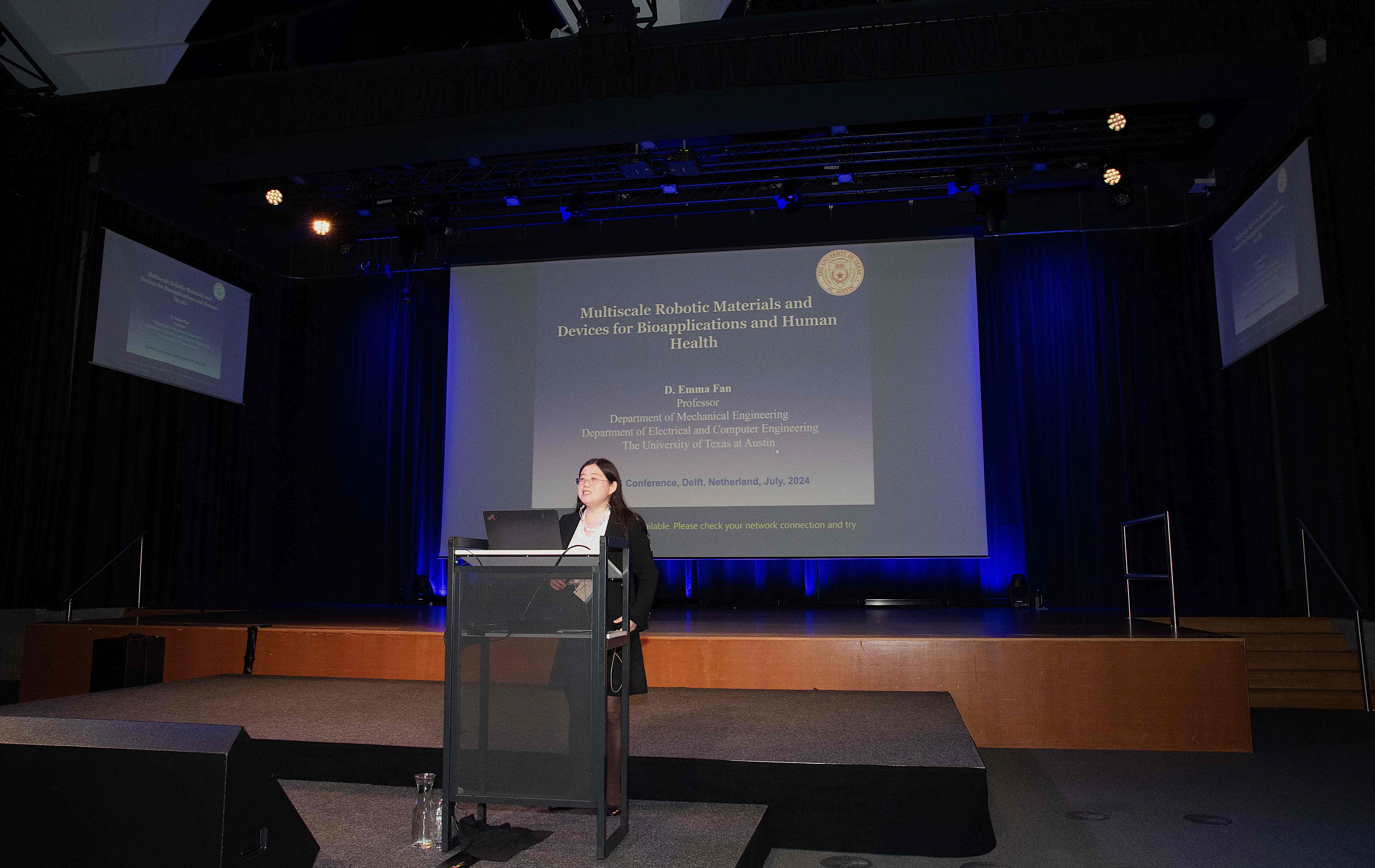
Dr. Donglei Emma Fan, from UT's Walker Department of Mechanical Engineering and Texas Materials Institute, has had a dynamic summer, delivering keynote speeches and a plenary talk at two prestigious international conferences.

